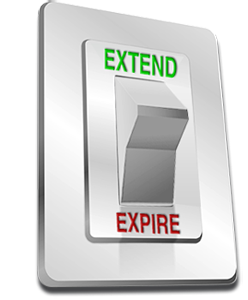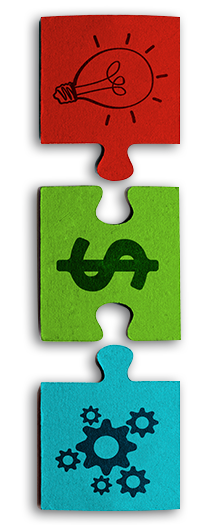With a flip like a light switch, a number of tax provisions that have been repeatedly extended year after year are now turned off once again. Outlined this month is a list of the more common expiring laws. Also included are five ideas to make 2014 a financially successful year, a general interest article describing the increasingly popular Crowdfunding concept, and a review of the health insurance penalty beginning this month for the uninsured.
As always, should you know of someone who may benefit from this information please feel free to forward this newsletter to them. | ||||||||||||||||||||||||||||||||||||
These Oft-extended Tax Provisions are Now Gone
Is it real this time?
In one of the most visible expressions of confusion in tax policy out of Washington D.C. is the treatment of a short list of tax laws that have been repeatedly extended only to expire only to be extended once again. A list of the more common expired tax code provisions is listed here for your reference. These laws expire on midnight December 31st, 2013 unless...once again... the laws are extended.
Action to take
| ||||||||||||||||||||||||||||||||||||
Crowdfunding: Using the Internet to Raise Funds When the internet first hit the scene, few of us could dream of the possibilities this instant global connection would enable. While many of us use the internet to search for information, shop online, or stay connected to friends via social media, there are other emerging uses that are less well known. One of them is a type of Crowdsourcing called Crowdfunding. When the internet first hit the scene, few of us could dream of the possibilities this instant global connection would enable. While many of us use the internet to search for information, shop online, or stay connected to friends via social media, there are other emerging uses that are less well known. One of them is a type of Crowdsourcing called Crowdfunding.
What is it?
To understand Crowdfunding you must first understand Crowdsourcing. According to Wikipedia;
Crowdsourcing is the practice of obtaining needed services, ideas, or content by soliciting contributions from a large group of people, and especially from an online community, rather than from traditional employees or suppliers.
A classic example of Crowdsourcing is when NASA needed millions of photos classified into categories within their database. Instead of paying employees to do this, they set up a tool and asked people over the internet to categorize their photos for them. The project was done in no time and with low cost.Crowdfunding is using this Crowdsourcing concept to raise funds. It leverages the instant global reach of the internet to generate awareness of a defined cause and then facilitates the collection of money for that cause.
How is it used?
Would you consider sending money to someone you don't know? Traditionally the answer would be no, but the delivery of Crowdfunding is so clever that it has become popular. Here are some of the common uses of Crowdfunding;
Things to consider.
Is Crowdfunding in your future? Here are some things to consider.
| ||||||||||||||||||||||||||||||||||||
Five Ideas for a Better 2014
As you buckle down and try to make plans to accomplish your 2014 resolutions, don't forget to conduct an annual review of things that impact your paycheck. Here is a checklist of five financial items to review:
| ||||||||||||||||||||||||||||||||||||
Health Insurance Penalty Starts Now
Time to be thinking about health insurance
 The health care legislation commonly known as Obamacare has many provisions that are being implemented over a number of years. As we start 2014, those that currently have no health insurance could be facing a tax penalty. The health care legislation commonly known as Obamacare has many provisions that are being implemented over a number of years. As we start 2014, those that currently have no health insurance could be facing a tax penalty.Beginning in January, 2014, everyone will be required to have health insurance or face a potential penalty. The initial penalty will be $95 per individual, $285 per family or 1% of your income whichever is greater. There is also a potential penalty assessed on employers who fail to offer employees health care insurance. What is not known, is whether there will be some penalty grace period due to all the sign up problems with the government's web site. If you are uninsured, your best defense is to review your health insurance options and register for an appropriate health insurance policy as soon as possible.
Health Insurance Details
| ||||||||||||||||||||||||||||||||||||
As always, should you have any questions or concerns regarding your situation please feel free to call.
| ||||||||||||||||||||||||||||||||||||
Wednesday, January 1, 2014
January 2014 Letter
Subscribe to:
Comments (Atom)









